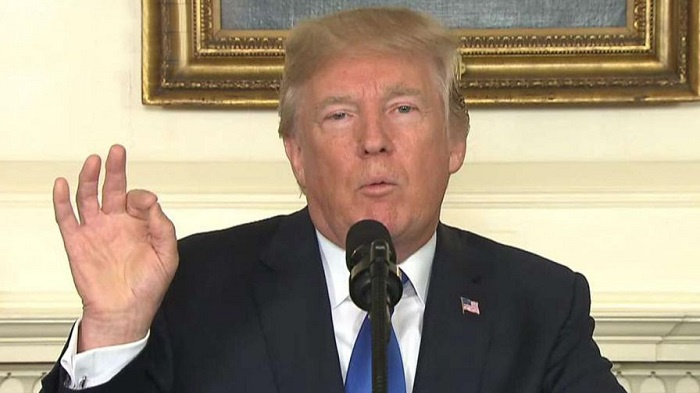When the Nuclear Violator Becomes the Accuser

By: Farhad Shahabi
In recent years, all references by the West in relation to Iran’s peaceful nuclear programme, have been constantly and invariably accusatory, using terms such as “nuclear threat” or “nuclear danger”. The signing of the nuclear accord or the Joint Comprehensive Plan of Action (JCPOA) too has not been followed by a reduction in the use of such accusatory terminology by the West, both in formal and informal settings. Recent examples are the statements from the British Foreign Minister, Boris Johnson, who whilst announcing his country’s support for the JCPOA and emphasizing the importance by all parties (particularly the US) to uphold their commitment to the nuclear accord, claimed that “[t]he nuclear deal was a crucial agreement that neutralised [Iran’s] nuclear threat”; and statement from the head of EU Security and Foreign Policy Federica Mogherini, who responding to the worrisome likelihood of the US leaving the agreement, comments that “[t]he deal has prevented, continues to prevent, and will continue to prevent Iran from developing nuclear weapons“.
It is to be noted that Iran, very soon after the victory of the Islamic Revolution, reiterated its commitment to the nuclear Non-Proliferation Treaty (NPT). In addition to this and despite many shortcomings of the NPT and the nuclear weapons non-proliferation regime, particularly its extremely discriminatory nature, the leader of the Revolution Ayatollah Khamenei issued a religious degree, fatwa, banning at the highest level of state authority and without any proviso or discrimination, the production, storage, use, and threat of use of nuclear weapons and all other weapons of mass destruction.
Also in practice, looking at the tumultuous history of the 8-year imposed war by Saddam as the acting agent of the West against the Islamic Republic of Iran, it is possible to find numerous evidence that in the most pressing circumstances of the war and even in the face of terrible war crimes by the enemy (who was the aggressor in this war), such as its extensive and repeated use of chemical weapons, bombing of cities and other residential areas in Iran, Iranian armed forces never resorted to WMD and were extremely averse to the use similar methods and to retaliation in kind.
Those who accuse Iran of being a nuclear threat are countries who themselves are not merely “accused” but are definitely and undeniably “guilty” of having both threatened and used methods and weapons of mass destruction, including nuclear weapons. Some of these Western countries who unbelievably and shamelessly accuse Iran of posing a threat to international peace and security, have a shameful and extensive record of egregious crimes against humanity and war crimes, such as the nuclear bombing of Japan, the occupation and chemical bombardment of Vietnam, supporting the illegal occupation of Palestine and the violent repression of Palestinians, the persuasion, arming and total support of Saddam and his war crimes against Iran, the intentional downing of the Iranian passenger plane over the Persian Gulf and the public praise of the perpetrators of this unprecedented war crime, and of course, the keeping and continued expansion of their nuclear weapons production.
After the nuclear deal, all of the eight reports of the International Atomic Energy Agency (IAEA) based on extremely and painstakingly meticulous and extensive inspections of Iran’s nuclear activities, have testified, without exception, Iran’s total commitment to and observance of the nuclear deal. Considering this undisputed and clear evidence of Iran’s commitment, the accusations of Iran’s nuclear threat is completely unwarranted and unfair, because they attempt at creating the impression in the minds of their audience that Iran is prone to deceitfully violate the NPT, and that it stands guilty of violation and of creating crisis in the international community.
It is therefore necessary that through diplomatic channels and in the first instance through discussion with the P5+1 members, particularly the EU members, to insist that such false labelling and falsely accusatory and humiliating terminology in relation to Iran has to be stopped. Clearly, terminology such as the removal of “worries” or “concerns” in relation to Iran’s nuclear programme, are considerably less emphatic and offensive falsehoods than words such as the removal of “threat” or “danger” of Iran’s nuclear programme.
Currently in circumstances that, as stated by the German Foreign Minister, the US behaviour towards Iran has pushed Europeans towards Russian or Chinese positions, there might be a suitable opportunity to address this difficulty.
* The Persian version of this article appeared in Iran Diplomacy on 14 October 2017. Farhad Shahabi is International Security and Arms Control Specialist.

